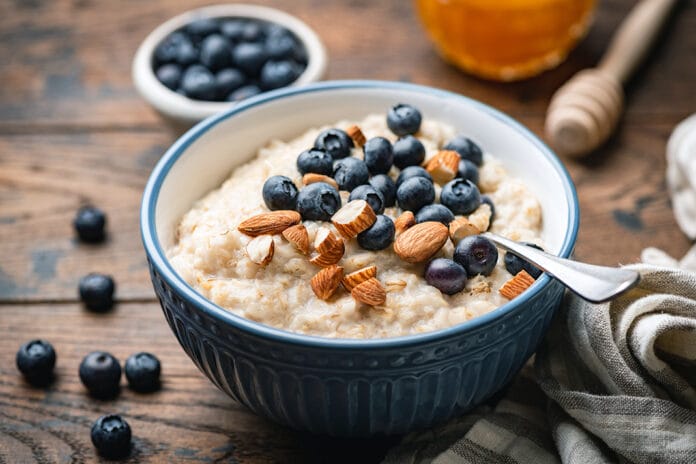New research from the Icahn School of Medicine at Mount Sinai suggests that skipping meals, particularly breakfast, could potentially hinder the body’s ability to fight off infections and may increase the risk of heart disease. This study, which used mouse models, is one of the first to indicate that fasting can trigger a brain response that negatively impacts immune cells. The findings could provide valuable insights into the long-term effects of chronic fasting on the body.1
While there’s a growing belief that fasting can be beneficial to health, this study suggests that there may also be potential risks associated with it. The research offers a note of caution, indicating that fasting may also have a downside that poses health risks. This study explores the fundamental biology related to fasting, such as the interaction between the nervous and immune systems.1,2
The Study
The study aimed to explore how fasting, ranging from a short fast of a few hours to a more prolonged 24-hour fast, impacts the immune system. Researchers examined two groups of mice: one group that ate breakfast immediately upon waking up (their largest meal of the day), and another group that skipped breakfast. Blood samples were collected from both groups at the wake-up time (baseline), then four hours later, and again eight hours later.1,2
The researchers observed a significant difference in the fasting group when analyzing the blood samples. Specifically, they noticed a change in the number of monocytes. Monocytes play a crucial role in combating infections, heart disease, and cancer.1,2
The Results
At baseline, all mice had the same number of monocytes. However, after four hours, the fasting group’s monocytes were significantly affected, with 90% of these cells disappearing from the bloodstream, and the number further declining at eight hours. In contrast, the monocytes in the non-fasting group remained stable.1,3
The researchers found that in fasting mice, the monocytes retreated to the bone marrow to hibernate, and the production of new cells in the bone marrow decreased. The monocytes in the bone marrow, which usually have a short lifespan, underwent significant changes. They lived longer because of staying in the bone marrow and aged differently than the monocytes that remained in the blood.1-3
After fasting the mice for up to 24 hours and then reintroducing food, the cells hidden in the bone marrow returned to the bloodstream with a few hours. An increased level of inflammation was seen due to this return. Instead of enhancing the body’s ability to fight off infections, these altered monocytes became more inflammatory, reducing the body’s resistance to infections.1,3
This study is one of the first to establish a link between the brain and these immune cells during fasting. The researchers discovered that specific regions in the brain controlled the monocyte response during fasting. Fasting triggered a stress response in the brain, leading to a large-scale migration of these white blood cells from the blood to the bone marrow, and then back to the bloodstream shortly after food was reintroduced.1,3
Clinical Applications
While there is evidence supporting the metabolic benefits of fasting, this new study contributes to a more comprehensive understanding of the body’s mechanisms. Fasting reduces the number of circulating monocytes, which might seem beneficial as these cells are key components of inflammation. However, the concern arises when reintroducing food. This causes a surge of monocytes returning to the blood, which could be problematic.1,3
According to the researchers fasting regulates this mechanism in ways that may not always be beneficial to the body’s ability to respond to challenges from pathogens.3 Understanding the function of monocytes is important, given their role in the onset and progression of diseases, such as periodontal disease, cardiovascular disease, and cancer.
For dental hygienists, this study holds significant implications. As healthcare professionals, we often advise our patients to maintain a balanced diet for optimal oral health. This research suggests that skipping meals, particularly breakfast, could potentially impact the body’s immune response, which is crucial in maintaining oral health.
Infections in the oral cavity, such as the assault by periodontal pathogens, are managed by monocytes among other immune cells. If fasting reduces the number of monocytes in the bloodstream, it could potentially weaken the body’s defense against oral infections. Moreover, the surge of monocytes back into the bloodstream after food reintroduction could lead to heightened inflammation, a key factor in the onset and progression of periodontal disease.
Additionally, the link between oral health and systemic health is well established. Conditions like heart disease have been linked to oral health, and this study suggests that fasting could potentially impact the monocytes that play a crucial role in both these diseases.
Conclusion
In conclusion, while the metabolic benefits of fasting are recognized, it’s essential to consider the potential impact on the immune system and, by extension, oral health. Until we better understand the health implications of fasting, we should continue to promote a balanced diet and regular meals to our patients for optimal oral and systemic health.
Before you leave, check out the Today’s RDH self-study CE courses. All courses are peer-reviewed and non-sponsored to focus solely on high-quality education. Click here now.
Listen to the Today’s RDH Dental Hygiene Podcast Below:
References
- Janssen, H., Kahles, F., Liu, D., et al. (2023). Monocytes Re-enter the Bone Marrow during Fasting and Alter the Host Response to Infection.Immunity. 2023;56(4): 783-796.e7. https://doi.org/10.1016/j.immuni.2023.01.024
- Domínguez-Andrés, J., Reinecke, H., Sohrabi, Y. The Immune Hunger Games: The Effects of Fasting on Monocytes. Cellular & Molecular Immunology. Published online ahead of print, 2023, May 10. https://www.nature.com/articles/s41423-023-01033-w
- Skipping Breakfast May Compromise the Immune System. (2023, February 23). ScienceDaily. https://www.sciencedaily.com/releases/2023/02/230223132816.htm











